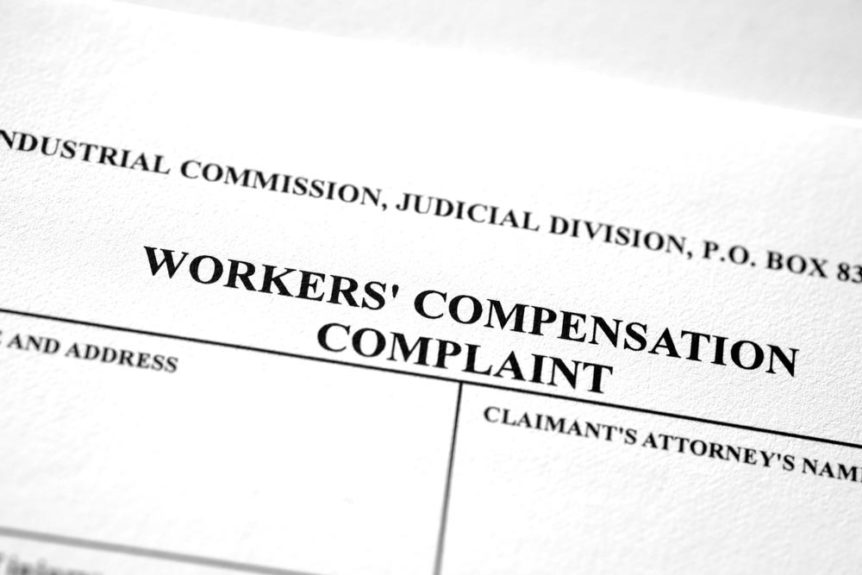Employers are legally required to provide a safe working environment for their employees. Despite this, injuries can still occur at the fault of your employer or a third party.
Although these injuries may be minor, at times,they can be quite significant and affect your ability to work and your quality of life. There are steps you must take to make sure you get the help you’re entitled to when injured at work. Every state has a system in place to help workers in this situation but, depending on the cooperation of your employer and their insurance company, there are cases when you’ll find it lucrative to hire a work injury lawyer.
Workers Comp Insurance
If you are injured at work, the very first thing you should do to protect your rights is to report the injury to your employer. Most states only give you a small window to do so, some within 24 hours and others might give you up to 30 days. If timely reporting isn’t possible due to the nature of the injury, it’s important to report it as soon as you can.
Employers are required to carry workers’ compensation insurance, and after reporting the incident, your next step is to file a workers’ comp claim. This official claim informs both your employer and their insurance company that you’ve suffered an injury. It also serves as a legal document for future proceedings and provides you with certain rights and protections.
Your Rights After an Injury at Work
Filing a workers’ compensation claim can be scary, and you probably have a lot of questions. If I get injured at work, do I get paid? Can my employer hold the injury against me? What if I’m injured at work then fired?
While the specific laws vary from state to state but some general legal rights apply to everyone. Part of the workers’ comp definition is that it provides medical benefits and wage replacement to injured employees. In return, the employee gives up their right to sue the employer for negligence.
You have a right to file a claim for any injury or illness acquired on the job, and you can seek medical treatment. Sometimes, you can use your own physician, but you might have to go to a physician that specifically works with your employer. If and when the physician clears you to return to work, you have the right to return to your job without fear of retribution. If you’re unable to return to work, you’re entitled to either short or long term disability compensation.
While you do give up the right to sue your employer for negligence when taking workers’ compensation, you can appeal a decision made by your employer, their insurance company, or the courts if you don’t agree. For example, if your employer insists that you can come back to work and you know you’re unable to, you can appeal this decision. Getting a workers’ comp lawyer drastically improves your chances of being successful in your appeal.

In addition to the things you’re entitled to, there are also a lot of things that you are entitled to refuse. For example, your employer may ask you to use your private insurance to pay for treatment to save the cost of your medical care or they may ask you to work through an injury when you know you’re not able to do. Sometimes, they may attempt to downplay your injury or try to talk you out of filing a claim, which is illegal.
One of the biggest protections you have as an employee is being able to file a workers’ compensation claim without worrying about retribution from your employer. If they try to make filing your claim difficult for you in any way, they could face some severe penalties. Any harassment brought on by the workers’ compensation claim is illegal. If you feel that you’re in a situation like this, it’s definitely worth bringing a qualified attorney on board to make sure you get what you deserve.
What About Third Parties?
Sometimes, your employer is not directly responsible for the injury. For example, you may have been injured by a faulty piece of equipment or an accident with a delivery truck. In this case, you’re entitled to file a workers’ compensation claim for lost wages and medical expenses, and you can also bring civil charges against the third party responsible.
Workers’ compensation claims are meant to reimburse you for lost wages and medical expenses, but civil lawsuits are a little different. If a third party is responsible for your injuries, you can pursue it a little further in court. Specifically, you can pursue non-economic damages, like compensation for pain and suffering.
Common Mistakes After Getting Injured on the Job
There are a lot of reasons why a workers’ compensation claim can be held up in court. Here are some of the most common mistakes that people make when it comes to work injuries.
- Waiting too long to report. You might think that your injury is no big deal, but sometimes things can get significantly worse over time at which point it could be too late.
- Omitting previous injuries from your claim. It’s very important to be as transparent as possible when filling out workers’ compensation forms and providing medical history. If you had a previous work injury that you never reported, omitting it from a new claim can be considered fraud and you may lose your right to compensation.
- Only reporting part of the injury. For example, if your primary injury is an injured back from a fall that also hurt your knee, be sure to report both. If your knee gets worse and you try to claim it later, it could be misconstrued as fraud. Report all injuries to your physician, so everything is officially documented.
- Not returning to work when you’re able to do so. Even if your employer offers you a different position to accommodate a long term injury, you should take it even if it’s at a lower wage. Failing to do so can look like you’re voluntarily giving up your income and your employer can actually terminate you for refusing to work.
Before seeking the assistance of an attorney, you can get an idea of how much your case may be worth with this online case evaluation form offered by the Lawsuit Info Center.
